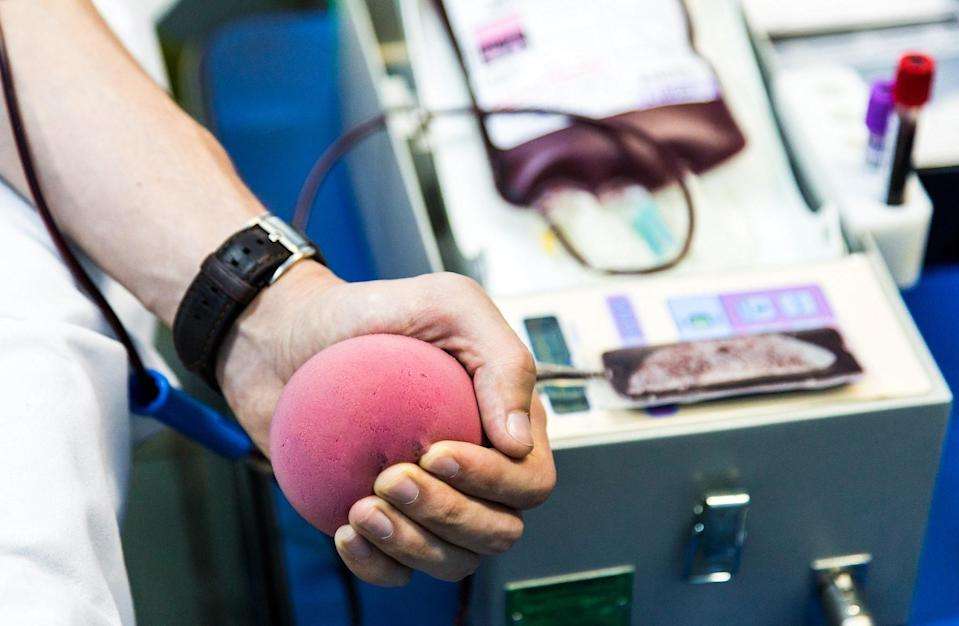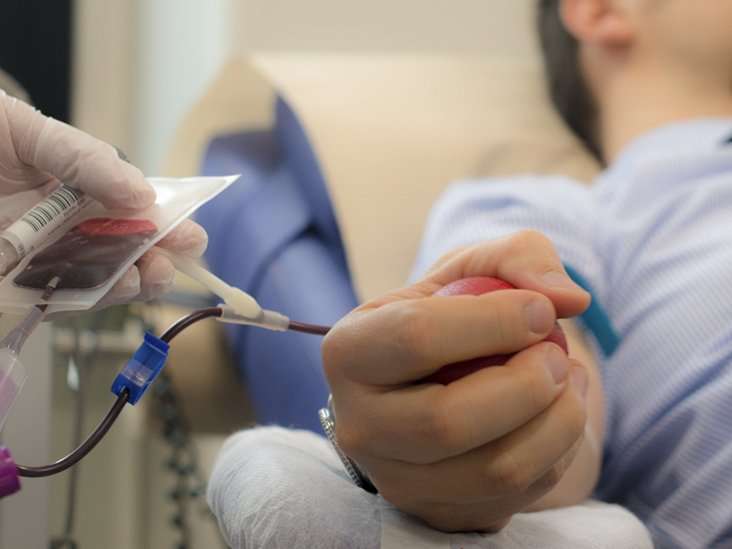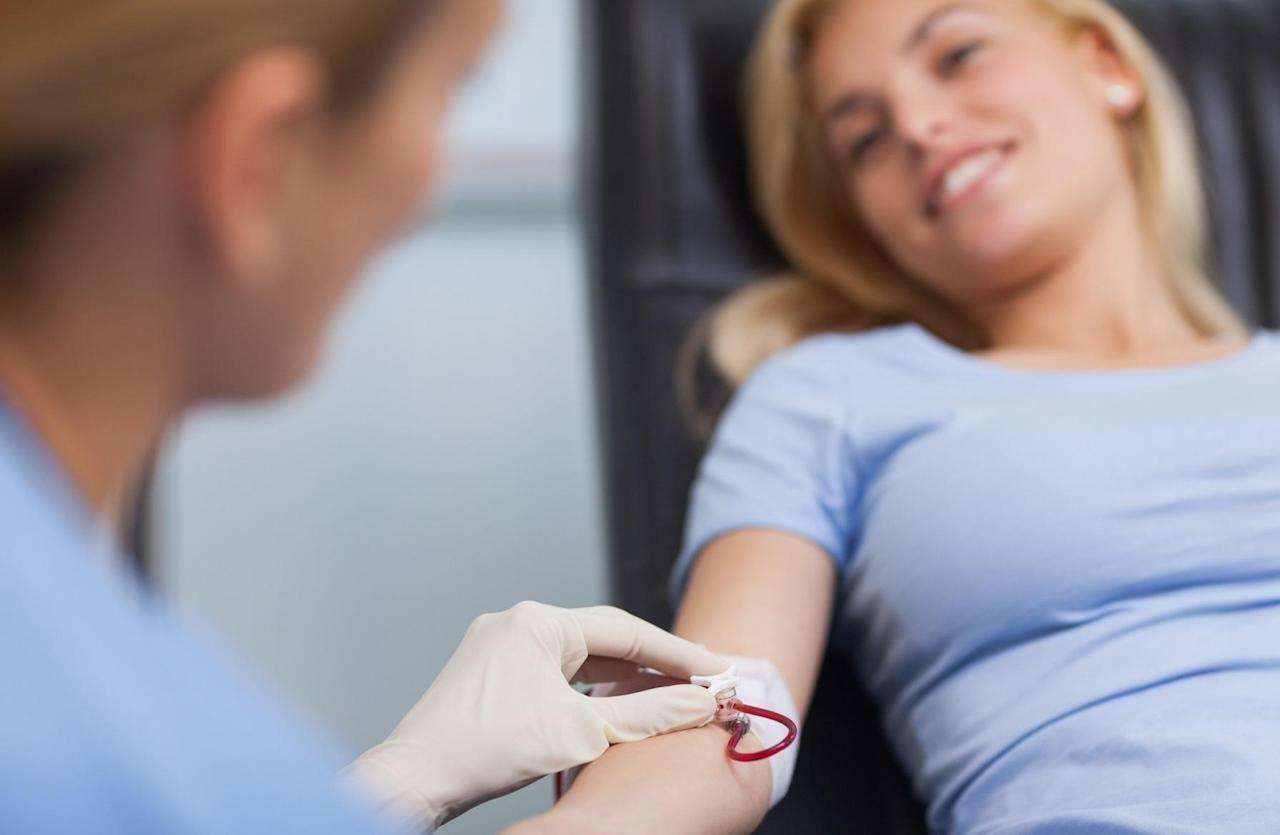Tissue Donation After Cancer Treatment
On average, 39,000 tissue donors provide lifesaving and healing tissue for transplants each year, and doctors end up performing around 1.75 million tissue transplants each year.
There are two types of tissue donors:
Most tissue donation occurs after the donor has died. However, there are still nearly 6,000 living tissue donations take place each year.
The tissue donations that occur after the donor has died must be initiated within 24 hours of an individual’s death. Unlike with organ donations, donated tissue can be processed and stored for an extended period of time.
Common tissue donations include:;
- tendons
- amniotic tissue
A Spray Tan Protects Against Uv Rays
A spray tan will not protect against sun damage unless it contains added UV protectants. Just spraying color onto the skin does not protect against UV rays, said Prof. Williams.
Dr. Phillips reiterates the message: They do not provide any protection against UV radiation and should not be used as an alternative to sunscreen.
If The Cancer Comes Back
If melanoma does come back at some point, your treatment options will depend on where the cancer is, what treatments youve had before, and your overall health. For more on how recurrent cancer is treated, see Treatment of Melanoma Skin Cancer by Stage. For more general information on dealing with a recurrence, see;Understanding Recurrence.
You May Like: How Long For Squamous Cell Carcinoma To Spread
New Eligibility Guidelines For Blood Donors With Previous Cancer Diagnoses
To coincide with American Red Cross recommendations, the;Mayo Clinic Blood Donor Program;has redefined eligibility guidelines for donors who have had a history of previous cancer diagnoses.
New Eligibility Guidelines
- Benign tumor: Acceptable to donate
- Basal cell carcinoma: Deferred for four weeks after date of surgical removal
- Squamous cell carcinoma;: Deferred for four weeks after date of surgical removal
- Leukemia,;Hodgkins;and;non-Hodgkins lymphoma, and myeloma: Ineligible to donate permanently
- Kaposis;sarcoma: Ineligible to donate permanently
Worldwide, there has never been a reported case of any type of cancer being transferred via blood transfusion, says;Justin Kreuter, M.D., Medical Director of Mayos Blood Donor Program. So, we recently reviewed our programs cancer-deferral policy and updated our practice to be in line with the American Red Cross.
The;American Red Cross;supplies approximately 40% of the donated blood in the United States, which it sells to hospitals and regional suppliers. Community-based blood centers supply 50%, and only 6% of blood and blood products are collected directly by hospitals.
Are These Changes Safe?Approximately one year after most cancer treatments, the vast majority of patients will be sufficiently recovered to donate blood products.
Keeping Health Insurance And Copies Of Your Medical Records

Even after treatment, its very important to keep health insurance. Tests and doctor visits cost a lot, and even though no one wants to think of their cancer coming back, this could happen.
At some point after your cancer treatment, you might find yourself seeing a new doctor who doesnt know about your medical history. Its important to keep copies of your medical records to give your new doctor the details of your diagnosis and treatment. Learn more in Keeping Copies of Important Medical Records.
You May Like: Can I Die From Skin Cancer
Can I Lower My Risk Of The Melanoma Progressing Or Coming Back
If you have melanoma, you probably want to know if there are things you can do that might lower your risk of the cancer coming back, or of getting a new skin cancer.
At this time, not enough is known about melanoma to say for sure if there are things you can do that will be helpful. We do know that people who have had melanoma are at higher risk for developing another melanoma or other type of skin cancer. Because of this, its very important to limit your exposure to UV rays and to continue to examine your skin every month for signs of melanoma coming back or possible new skin cancers. Skin cancers that are found early are typically much easier to treat than those found at a later stage.
Adopting healthy behaviors such as not smoking, eating well, being active, and staying at a healthy weight might help as well, but no one knows for sure. However, we do know that these types of changes can have positive effects on your health that can extend beyond your risk of melanoma or other cancers.
Organ Donation And Eligibility
Anyone;can register a decision to become an organ donor after death, there is no age limit.
To donate organs after death, a person needs to die in hospital in specific circumstances.;
To;add your name to the NHS Organ Donor Register you’ll need to live in the UK, Channel Islands or Isle of Man.;
Specialist healthcare professionals decide in each individual case whether a person’s organs and tissue are suitable for donation.
For more information about eligibility for organ donation after death, please select a category below.
For information about becoming a living organ donor,;.;
Is there an age limit;for becoming an organ donor?
There is no age limit for becoming an organ donor.;
The decision about whether some or all organs or tissue are suitable for transplant is always made by medical specialists at the time of donation, taking into account your medical, travel and social history.
Can children join the NHS Organ Donor Register?
Parents and guardians can register their children, and children can register themselves.
Children who are under 12 in Scotland and under 18 in the rest of the UK at the time of registration will require their parent or guardians agreement for donation to take place.
Also Check: How To Remove Skin Cancer On Face
Natural Products Are Better For The Skin
Products that are marketed as natural are popular among consumers. However, the term natural says nothing about a products effectiveness or safety.
Arsenic is natural after all, Prof. Williams reminded us. Many natural products, such as moisturizers, are very expensive and have no additional benefit over cheaper, refined products.
He also noted that natural products can have just as many side effects as well-tested medical products they may not be as effective, and they may suffer from stability issues. But it is a personal choice if people like the sound of the word natural as a euphemism for gentle or safe and want to pay for the product, that is up to them.
Poison ivy is all-natural, said Dr. Goldstein, but you would not rub it all over your skin. She also explained that all-natural products can still have serious environmental impacts. Importantly, according to Dr. Phillips, natural ingredients, especially in high quantities, can trigger allergies and irritate the skin.
Does Skin Cancer Show Up In Blood Tests
The first major step towards diagnosis of skin cancer is a biopsy. Imaging tests may be used before, during or after a biopsy. Imaging helps your doctor see what is happening beneath your skin, and the extent of disease. It also makes it easier for medical professionals to collect a specimen for skin cancer biopsy tests. Use of imaging technology adds quality to the process of diagnosing and treating skin cancers.
Your healthcare provider or doctor will ask for a blood test if you have skin cancer biopsy positive results. Skin cancer shows up in a number of blood tests. Your doctor will order the tests that you will undergo. A blood sample usually drawn by venipuncture is needed for the tests. Blood tests for skin cancer focus on melanoma skin cancer. The tests help in identifying if a melanoma has spread to other body tissues and organs.
You May Like: What Does Squamous Skin Cancer Look Like
Back Neck Hip And Spine
Common back problems such as sprains, strains and aches should not interfere with a marrow donation. If you have had a single back surgery more than 5 years ago, and have no ongoing symptoms, you may be able to donate. If you have chronic/ongoing back pain requiring medical treatment , chiropractic treatments, etc.) you will not be able to donate.
The following back-related issues must be carefully evaluated to determine whether or not you may donate:
- Single surgery 2-5 years ago
- Multiple surgeries, no matter how long since procedures
- History of fracture 2-5 years ago from an injury
- History of herniated, bulging or slipped disc in any location of the back
- Mild osteoarthritis involving the spine, neck or hip
- Diagnosis of scoliosis, if no history of surgery or if the rods/pins have been removed and you are fully recovered
- Diagnosis of degenerative disc disease
If you have significant back problems and/or any questions regarding your medical condition, contact your local donor center.
Exfoliating Daily Is Essential For Healthy Skin
Skin exfoliation is the process of removing dead cells from the surface of the skin. This can be achieved by using an exfoliation tool, a granular surface, or chemicals.
Although popular, exfoliation is not essential. As Prof. Williams explained to MNT, the skin feels smoother after exfoliating, but repeated exfoliation is damaging the natural skin barrier.
Recommended Reading: What Are The Symptoms Of Melanoma Skin Cancer
Q: Are There Any Restrictions On Being A Donor Based On What Kind Of Cancer Someone Has Had
Unfortunately, survivors of blood cancers and melanoma are currently ineligible to donate, and they still have a lifetime deferral, which is precautionary.
Living organ donations are assessed in consultation with a physician and based on recipient consent on a case-by-case basis. Similarly, for deceased donation, each case is assessed on a case-by-case basis and reviewed at the time of death. Based on a range of factors, the deceased donors organs and tissues may be eligible for use.
Full Blood Count Information

A full blood count measures the number of red cells, white cells and platelets in your blood.
- Red cells carry oxygen around our bodies. Haemoglobin is the part of the cell that carries oxygen. If you have a low red cell count, your doctor might say youre anaemic . This can make you feel tired, short of breath and dizzy.
- White cells fight infections. There are several different types of white cells, including neutrophils and lymphocytes.
- Platelets help clot the blood. Symptoms of a low platelet count include;abnormal bleeding, such as bleeding gums and nosebleeds.
There isnt an exact range of normal for blood counts. The range of figures quoted as normal varies slightly between laboratories and also differs between men and women.
Don’t Miss: What Does Skin Cancer On The Hand Look Like
Can I Donate Blood If I Have Had Cancer
No, you cant donate blood if you have had cancer.
The UK Blood Transfusion and Tissue Transplantation services have guidelines about who can donate blood.
The guidelines say that you cant donate blood if you have had cancer because there is a theoretical risk that a cancer cell could be passed on in the blood. There is no evidence to prove that this is possible. It is very much a safety measure.
There are exceptions. You may be able to donate blood if you:
- have had basal cell skin cancer which has been completely removed and your wound has healed
- have had treatment for a pre cancerous condition and are no longer having follow up. You may have had treatment for abnormal cervical cells and your follow up test did not show any abnormal cells and you have been discharged
Living As A Melanoma Skin Cancer Survivor
For many people with melanoma, treatment can remove or destroy the cancer. Completing treatment can be both stressful and exciting. You may be relieved to finish treatment, but find it hard not to worry about cancer growing or coming back. This is very common if youve had cancer.
For some people, the melanoma may never go away completely. These people may get regular treatment with immunotherapy, targeted therapy, chemotherapy, or other treatments to try to help keep the cancer under control for as long as possible. Learning to live with cancer that does not go away can be difficult and very stressful. It has its own type of uncertainty.
Recommended Reading: Is Skin Cancer Usually Raised
When Blood Donation Is Ok
It’s important to note that eligibility to donate blood can vary depending upon the cancer center or blood donation organization. For people who have had cancer, the donation center may require a letter from your oncologist indicating that it is safe for you to donate blood. In general, cancer survivors can donate blood in the United States if:
- You meet the basic criteria above,
- You had a solid tumor and it has been at least 12 months since the completion of cancer treatment, and you currently are cancer-free . That said, some centers require five years, and others 10 years after the completion of successful cancer treatment.
- You are childhood leukemia or lymphoma survivor and it has been at least 10 years since being deemed cancer-free.
- If you had a very early cancer in which surgery is curative . With these very early cancers, survivors can donate blood as soon as they are healed from surgery.
- People who have precancerous lesions are usually able to donate blood as soon as any treatment to remove the cells has taken place.
Can I Donate If
For whole-blood donation, you can make an appointment using our simple on-line form. If you have any other questions or concerns regarding donation, call the NIH Blood Bank at 496-1048. We can also answer many of your questions via email at .
Below, you will find a list of questions donors frequently ask. The eligibility criteria for donation at the National Institutes of Health Department of Transfusion Medicine reflects local NIH policy as well as national regulations. Although all blood banks are required to follow general federal regulations, specific criteria may vary, depending on each blood bank’s internal policies. If you are donating at a blood bank other than the NIH Blood Bank, contact that bank with any questions regarding your eligibility.
Can I donate if …
Can I donate if I am taking aspirin?;You cannot donate platelets if you have taken aspirin in the last 48 hours.
Can I donate if I am 16 years old?;You must be at least 17 years old to donate at the NIH Blood Bank or Donor Center at Fishers Lane.
Can I donate if I am 70 years old?;There is no upper age limit for donation.
Can I donate if I have traveled to other countries? ;There is a slight risk of exposure to infectious agents outside the United States that could cause serious disease. Donor deferral criteria for travel outside the US are designed to prevent the transmission of three specific organisms from donor to recipient:;;
Read Also: What Does Early Squamous Skin Cancer Look Like
How Cancer Survivors Can Be Blood Organ And Tissue Donors
Dr. Mindy Goldman, medical director of donor and clinical services at Canadian Blood Services, details donating after cancer
Cancer patients can spend days, weeks and even years inside of hospital rooms, often on the receiving end of life-saving blood donations, plasma transfusions or stem-cell transplants. Many cancer patients and survivors know the importance of blood and organ donation first-hand and many are keen to give back. Four years ago, cancer survivors were unable to donate blood, but Dr. Mindy Goldman, medical director of donor and clinical services at Canadian Blood Services, explains how to donate now, following changes implemented in 2016.
Can Cancer Survivors Donate Blood
Categories:Cancer Survivorship,Survivorship & Helping Others
You’ve bravely fought your battle with cancer and want to give back, but can you donate blood as a cancer survivor? Ultimately, this will depend on the type of cancer you’ve had, the treatment you’ve gone through, and what organization you; plan to donate with. Read on to learn more about blood donations after cancer treatment as well as alternatives to blood donations, such as platelets and tissue donation.;
You May Like: How Fast Does Melanoma Metastasis
When Blood Donation Is Not Allowed
People with cancer who are not eligible to donate blood in the United States include:
- Those in active cancer treatment
- Those who have a cancer that is progressing
- Those who have a cancer that has recurred following remission
- Those who have had blood-related cancers as an adult, such as leukemia, lymphomas including Hodgkin disease, multiple myeloma, or polycythemia rubra vera
- Those who have had cancers such as Kaposi’s sarcoma or mycoses fungoides. A history of Kaposi sarcoma, in particular, prohibits blood donation in the future.
- Those who have had treatment with some particular chemotherapy medications, or certain treatments for cancer such as an organ transplant or a splenectomy
Those who have had blood-related cancers may never donate blood.
Eligibility Guidelines For The American Red Cross

The American Red Cross does allow some people with a history of cancer to donate blood. However, they must meet the following requirements:
- You must wait at least 12 months following the completion of treatment to donate your blood.
- You cannot have had a recurrence of cancer.
- If you are currently in treatment, then you are ineligible to donate.
The American Red Cross does make note that those treated for low-risk in-situ carcinomas like basal cell carcinomas or squamous cell carcinoma do not need to wait 12 months after treatment. Women who have had a precancerous cervical condition can donate;provided their cancer was successfully treated. If you have ever had lymphoma or leukemia, or any other blood cancer as an adult, then you cannot donate your blood to the Red Cross.
There are other conditions and factors that affect donor eligibility. Read the Red Cross’s list of conditions that may affect your donor status.
Also Check: How Fast Does Subungual Melanoma Grow